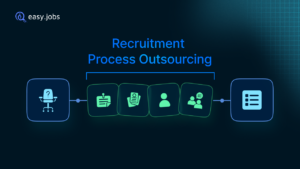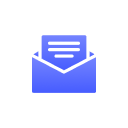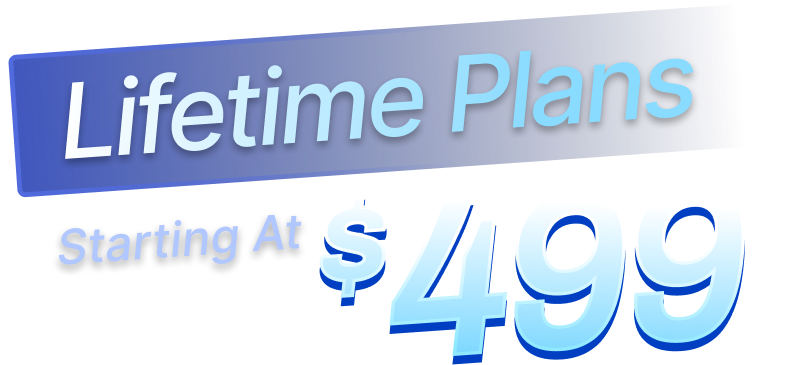Imagine a recruiter buried under resumes, losing top talent as delays grow. Every slow step risks wrong hires, costing time and money. You want faster, smarter hiring that reduces errors and bias. With AI in Talent Acquisition, you gain tools that automate tasks, deliver insights and ensure better hiring decisions today.

In this guide, you will learn why the old system is broken, how AI makes every step of the process smarter and what the future of recruiting looks like. By the end, you will have a clear roadmap for using AI to win the war for talent.
The Old Way is Broken: Why Recruitment Needs an Upgrade

Recruitment has long relied on outdated methods that drain time, limit fairness and frustrate candidates. To understand why change is urgent, let us look at the biggest challenges that make traditional hiring ineffective.
The Time Sink
Recruiting often means hours spent searching for candidates, reviewing resumes and scheduling interviews. These tasks consume valuable time but offer little in terms of ensuring better hires.
For HR departments, this slows down not only hiring but also impacts onboarding and retention strategies. This is why recruitment automation has become a necessity. Automation frees recruiters from repetitive tasks and allows them to focus on strategic decision-making.
Unconscious Bias
Human-led processes can unintentionally favor specific candidates over others. Small details, such as names or backgrounds, can influence decisions without recruiters even realizing it. This creates barriers to diversity and inclusion. Without intervention, companies miss out on top talent simply because bias slips into the process.
HR leaders are under pressure to ensure fair hiring practices and compliance with equal opportunity regulations. AI helps reduce risks by standardizing decisions based on skills, not personal details.
The Candidate Black Hole
Many job seekers report that they apply for positions but never hear back. This lack of communication damages the employer’s brand and leaves qualified candidates frustrated. The traditional system does not prioritize candidate experience, leading to missed opportunities and negative impressions. This also affects HR’s reputation as a strategic partner in building a positive employer brand.
These problems are not inevitable. With the rise of AI-driven recruiting, organizations no longer have to accept slow processes, bias and poor candidate engagement. The time has come to embrace solutions that not only improve efficiency but also create a fair and engaging hiring journey.
Demystifying AI in Talent Acquisition: What Is It Really?

When people hear the words AI in Talent Acquisition, they sometimes imagine robots making hiring decisions. The truth is much simpler. AI in recruiting means using smart technology to make the hiring process faster, fairer and more effective.
For HR professionals, AI is not about replacing recruiters. It is about strengthening the HR function by freeing teams from repetitive tasks so they can focus on building culture, engaging employees, and aligning hiring with long-term workforce strategies.
Think of AI as a super-powered assistant for your recruiting team. Instead of spending hours reviewing resumes or sending duplicate emails repeatedly, pre-screening applicants, AI tools can handle these tasks in minutes. For example:
- Machine Learning helps systems recognize patterns in resumes and match them with job descriptions.
- Natural Language Processing (NLP) allows chatbots to talk with candidates, answer their questions, and even ask them simple screening questions.
These tools do not replace recruiters. They support them. The goal is to eliminate repetitive tasks, allowing recruiters to focus on the human aspect of hiring, such as building relationships with top candidates and making informed decisions.
In simple terms, AI in Talent Acquisition is not about taking away control. It is about giving recruiters more time and better insights so they can hire the right people with confidence.
From Sourcing to Signing: AI’s Impact Across the Hiring Funnel

AI is not just one tool. It touches every part of the hiring process, from the moment you search for candidates to the day you make the offer. Let us look at how it works across the funnel.
A. Intelligent Sourcing and Attraction
Finding the right candidates is often the hardest part. Recruiters spend hours looking through LinkedIn profiles, online resumes, and job boards. Candidate Sourcing AI changes this.
AI tools can scan platforms like LinkedIn, GitHub, or even niche communities to find people with the right skills. These tools can also spot passive candidates who are not actively applying but may be open to new opportunities.
On top of that, AI powers programmatic job advertising. Instead of guessing where to post a job ad, AI analyzes data to place ads where the right people are most likely to see them. This means your job openings reach the right candidates faster.
B. Automated And Unbiased Screening
Screening resumes is another time-consuming task. Recruiters can only review so many applications in a day, which often means strong candidates get overlooked. AI screening tools solve this problem.
AI can scan thousands of resumes in minutes. It looks for skills, experience, and keywords that match the job description. This ensures the best candidates rise to the top quickly.
Chatbots also play a role here. AI chatbots can start conversations with applicants, ask basic qualifying questions, and even provide instant feedback. For example, a chatbot might ask about work experience or availability. This makes the process faster for both recruiters and candidates.
The most important part is fairness. AI tools can be designed to reduce unconscious bias by focusing only on job-related skills instead of personal details like names or backgrounds. This creates a more level playing field for all candidates.
C. Engaging and Assessing Candidates
Once candidates pass the first round, AI helps keep them engaged. Some tools offer AI-driven skill assessments or even game-like challenges. These tests give recruiters objective data about a candidate’s abilities instead of relying only on resumes or gut feelings.
Scheduling is another area where AI saves time. Instead of back-and-forth emails to set up interviews, AI-powered tools can sync with calendars and automatically suggest times that work for both sides. This removes delays and makes the process smooth for everyone. By keeping candidates engaged and respected at every step, companies build a stronger employer brand.
D. Data-Driven Decision Making
AI does more than just speed things up. It also provides data-driven insights. Recruiters can see where candidates are dropping out of the process, which sourcing channels bring the best results, and even which candidates are most likely to succeed in the role.
With this kind of data, companies can make smarter hiring decisions and improve their recruiting process over time. Instead of guessing, they rely on clear evidence.
This is how AI shapes every stage of recruiting. From sourcing to screening to final decisions, AI makes the journey faster, smarter, and more human-friendly.
AI Recruiting Benefits: Smarter, Fairer, Faster
AI in Talent Acquisition is not only about moving faster. It brings real benefits that change how companies hire and how candidates experience the process. Let us look at the key advantages.
Improved Quality of Hire
HR leaders can measure the quality of hire through performance metrics and retention data, making recruitment more accountable to business outcomes.
AI expands your reach and helps you connect with a wider pool of candidates. It does not just find more people, it finds the right people. By matching skills, experience and job requirements more accurately, AI improves the quality of each hire.
Reduced Unconscious Bias
Human decisions can be influenced by bias, often without realizing it. AI tools focus on skills and data, not personal details. This not only supports diversity but also helps HR maintain compliance with workplace equality regulations.
Enhanced Candidate Experience
Nobody likes sending out an application and never hearing back. AI tools like chatbots provide quick updates and feedback to candidates. Automated scheduling makes interviews simple and stress-free. This positive experience improves how candidates see your company, even if they do not get the job.
Increased Recruiter Productivity
Recruitment automation takes away repetitive tasks such as resume screening and scheduling. Recruiters can spend their time on what really matters: talking with candidates, building relationships, and making strategic hiring decisions. This balance makes the entire process more effective.
Stronger Employer Brand
When candidates feel respected and engaged, they talk about it. A smooth and fair hiring process strengthens your reputation as a great place to work. This reputation attracts more high-quality applicants in the future. For HR, employer branding is now part of a larger talent strategy that covers attraction, engagement and retention.
In short, AI in recruiting does more than save time. It improves outcomes for both businesses and candidates, creating a hiring process that is efficient, fair and people-focused.
Making AI Actionable: The Rise of Integrated Talent Acquisition Platforms
By now, you can see how AI helps in every part of recruiting. But here is the challenge: many companies try to use different tools for sourcing, screening, scheduling and assessments. This quickly becomes messy and confusing. Switching between multiple platforms takes time and creates more problems instead of solving them.
The real solution is an AI integrated Talent Acquisition Platform. These platforms bring all the AI features you need into one place. Instead of juggling many tools, you get a single system that handles everything smoothly.
This is where solutions like easy.jobs stand out. With easy.jobs, recruiters do not have to worry about connecting different tools. The platform comes with AI-powered features built right in. For example:
- Smart resume screening that helps you quickly identify the best candidates.
- Automated pipelines that organize applicants and keep the process moving.
- AI-driven communication tools that keep candidates engaged and informed.
All of these features work together to remove the busywork from hiring. Recruiters can then focus on what really matters: finding and choosing the right people.
An integrated platform like easy.jobs makes AI easy to use, even for teams that are new to the technology. It simplifies the complexity and gives recruiters a clear path to smarter, faster, and more human-friendly hiring.
Looking Ahead: What is Next for the Future of Recruiting?
As AI handles routine tasks, HR professionals will step into more strategic roles. The future of recruiting will be even more personalized, data-driven and strategic. They will advise leadership on workforce planning, integrate recruitment insights with employee development and ensure that talent acquisition supports long-term organizational goals.
Hyper-Personalization
AI will allow recruiters to create a unique journey for every candidate. From personalized job ads to tailored interview questions, the experience will feel more human and engaging. Candidates will feel like companies really understand their skills and career goals.
Predictive Analytics
AI will also help companies look ahead. With predictive analytics, recruiters will know what roles they will need in the future and where to find the right talent. It can even highlight existing employees who are ready for upskilling or internal promotions.
The Evolving Role of the Recruiter
As AI takes care of routine tasks like screening and scheduling, recruiters will focus on strategy. They will become talent advisors who build relationships, guide hiring managers, and create long-term workforce plans. In short, AI will not replace recruiters, but it will make their role more valuable.
The future of recruiting will be a mix of human connection and smart technology. Together, they will make hiring faster, fairer, and more effective.
AI in Recruitment is the Best Partner in the New Era of Hiring
Recruiting is no longer about endless resumes, slow processes, and missed opportunities. AI in Talent Acquisition has become a must-have for companies that want to compete for top talent. It improves speed, fairness, and candidate experience while giving recruiters more time to focus on people, not paperwork.
The future of recruiting is a partnership between human intuition and artificial intelligence. Together, they create a smarter and more effective hiring process. If you found this guide useful and want more HR-focused insights on hiring smarter, building stronger employer brands, and integrating recruitment automation into your overall HR strategy, subscribe to our blog. For real-time advice, join our Facebook community of recruiters, HR professionals, and business leaders who are shaping the future of work.






